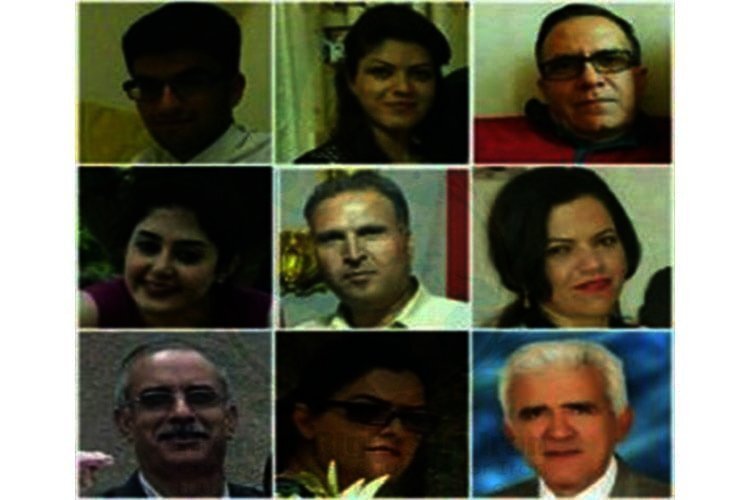In the contemporary world, the plight of the Bahá’í community in Iran has emerged as an emblematic locus for examining themes of resilience, faith, and the struggle for human rights. The collection of letters authored by imprisoned Bahá’ís serves as poignant testaments to their steadfast commitment to their beliefs, even in the face of systemic repression. These narratives provide not only a window into the lives of those persecuted for their faith but also illuminate broader questions regarding the nature of spirituality, justice, and human dignity.
The Bahá’í teachings advocate for the essential unity of humanity, emphasizing that all individuals are created equal and deserve to live free from discrimination and oppression. This ethos starkly contrasts with the reality that many Bahá’ís in Iran experience, including unjust imprisonment and harsh penalties for their beliefs. Letters from prison provide an evocative insight into the psychological and emotional landscapes of those enduring such adversity. Herein lies the power of these writings: they transcend mere documentation of suffering, evolving into vehicles of hope and spiritual insight.
These correspondences often convey profound reflections on the nature of resilience. In moments of despair, depicted soliloquies resonate with themes of patience and fortitude, indicative of a belief system that prizes spiritual growth over material existence. The letters articulate a perspective that challenges readers to contemplate their own responses to adversity. Such philosophical musings raise essential inquiries: How can individuals maintain faith when confronted with injustice? What role does community play in sustaining hope during bleak times?
Moreover, these writings often explore the idea of service as a form of devotion. Bahá’í teaching underscores the importance of contributing to society, even amidst personal suffering. Letters from prison delineate a vision where the act of enduring strife is itself an expression of service—both to one’s faith and to humanity at large. This nuanced understanding of sacrifice encourages a reevaluation of conventional perceptions of martyrdom and highlights the transformative potential of suffering.
Another remarkable aspect of these letters is their espousal of love as a foundational pillar of belief. Despite the hostility emanating from their oppressors, many imprisoned Bahá’ís articulate messages of love and forgiveness, underscoring their commitment to non-violence and peace. This unwavering dedication to the principle of love is indicative of a deeper philosophical stance rooted in the belief that true strength lies in compassion rather than retaliation.
The personal narratives embedded within these letters often recount everyday experiences that transcend the confines of prison walls. Such narratives serve to humanize the authors, allowing readers to connect on a visceral level with the realities faced by these individuals. The descriptions of mundane activities, interspersed with reflections on faith, create a tapestry of life that is both relatable and inspiring. For many, the juxtaposition of routine within the context of oppression generates a compelling narrative that elicits both admiration and empathy.
The impact of these letters extends beyond the immediate experiences of the authors. They resonate with a universal audience, tapping into shared human experiences of struggle, hope, and the quest for meaning. The eloquence found in the prose, often marked by meticulous expression of thought and feeling, engages readers deeply, encouraging introspection regarding their own lives and beliefs. It becomes clear that the universal themes present in these writings facilitate a bridge connecting disparate cultures and experiences, fostering a collective understanding of the human condition.
Additionally, the letters often articulate a longing for justice—not just for the Bahá’í community but for all oppressed groups. This broader consciousness underscores the interconnectedness of humanity and the notion that the struggle for equality is a shared endeavor. Through their correspondence, imprisoned Bahá’ís effectively communicate the imperative that the quest for justice must be pursued with unwavering commitment, embodying an ethos that fundamentally rejects passivity in the face of injustice.
As these vibrant narratives circulate through various channels, the fascination surrounding them can be traced to the intricate interplay between tragedy and spirituality. This duality invites readers to grapple with complex questions about the nature of suffering and redemption. Indeed, the ability of these letters to evoke such deep emotion and provoke critical thought is a testament to their power as artifacts of human expression.
The dissemination of these letters presents an opportunity for advocacy and mobilization. By amplifying the voices of the oppressed, supporters can foster a global dialogue about human rights, religious freedom, and social justice. The stories contained within these correspondences push boundaries, inspiring individuals to participate actively in the discourse surrounding persecution and the fundamental rights of all citizens—particularly those of minority religions, such as the Bahá’ís. The implications of this advocacy extend beyond national borders, bearing relevance to international efforts aimed at promoting harmony and understanding among diverse groups.
In conclusion, the letters from imprisoned Bahá’ís serve as vital documentation of resilience, love, and the unwavering pursuit of justice. They challenge contemporary audiences to reconsider personal beliefs, societal norms, and the enduring power of faith in the face of oppression. The discourse ignited by these writings encourages a commitment to action, fostering a greater understanding of, and empathy for, the struggles endured by those who seek to practice their faith freely. Through examining these poignant reflections, a deeper appreciation for the intersection of spirituality and activism emerges, illuminating the path for future generations to follow in their pursuit of a just and equitable world.
